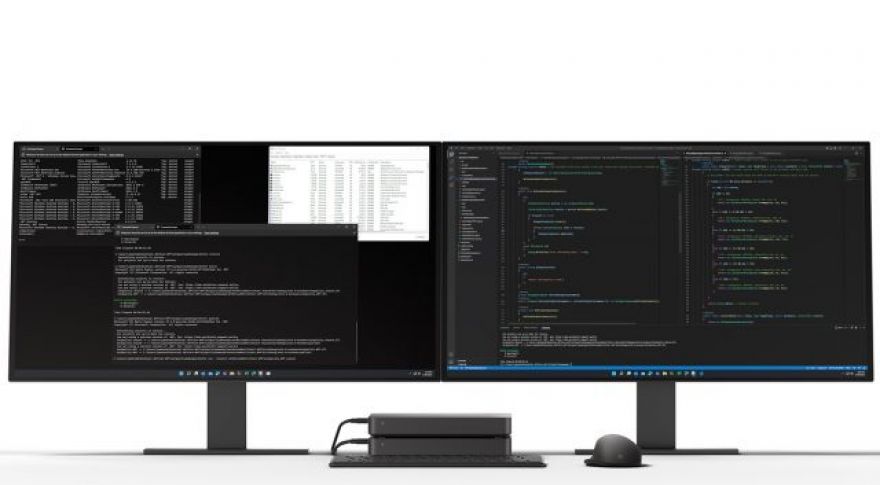
Microsoft Announces ARM-Based Mini Desktop PC, ARM-Native Dev Tools
Microsoft has taken a few swings at making Windows work with ARM processors, stretching all the way back to Windows RT. It took that and a few more disasters before Microsoft realized it needed x86 software support. Today, on ARM is a reality, though not an extremely widespread one. Microsoft’s might not change that, but this tiny ARM-based desktop PC could be the start of something big.
Project Volterra was announced at Microsoft’s Build conference, alongside a new suite of ARM development tools. Microsoft didn’t reveal all the specs of Project Volterra, but we did get a good look at the exterior of the matte black box.
The mini desktop computer will run on an unnamed Qualcomm system-on-a-chip (SoC) with a built-in neural processing unit (NPU), giving it better AI computing than similar small form factor devices. It also appears to have a standard NVMe SSD and a small cooling fan, which could signal better performance than many small ARM desktops. Microsoft sees Project Volterra as an ideal testing platform for machine learning apps, and Microsoft is ready to provide the tools to make that a reality.
Microsoft plans to release ARM-native versions of its most popular development tools, including Visual Studio 2022, VSCode, Visual C++, Modern .NET 6, the classic .NET framework, and Windows Terminal. Windows will also have support for the Windows Subsystem for Linux and Windows Subsystem for Android on ARM-based systems. This is a major improvement for those who want to work on ARM because there’s a not-insignificant performance hit from converting x86 and x64 code to ARM using emulation.
Microsoft says Project Volterra will be available later this year for an undisclosed price. While we don’t know about the Qualcomm chip’s performance, it will almost certainly be lower than Apple’s M1-based computers. Thus, it should also retail for less than the Mac Mini, which starts around $700. The ARM-based development tools will begin rolling out in the coming weeks, allowing devs to run them using existing Windows on ARM devices.
Now Read: